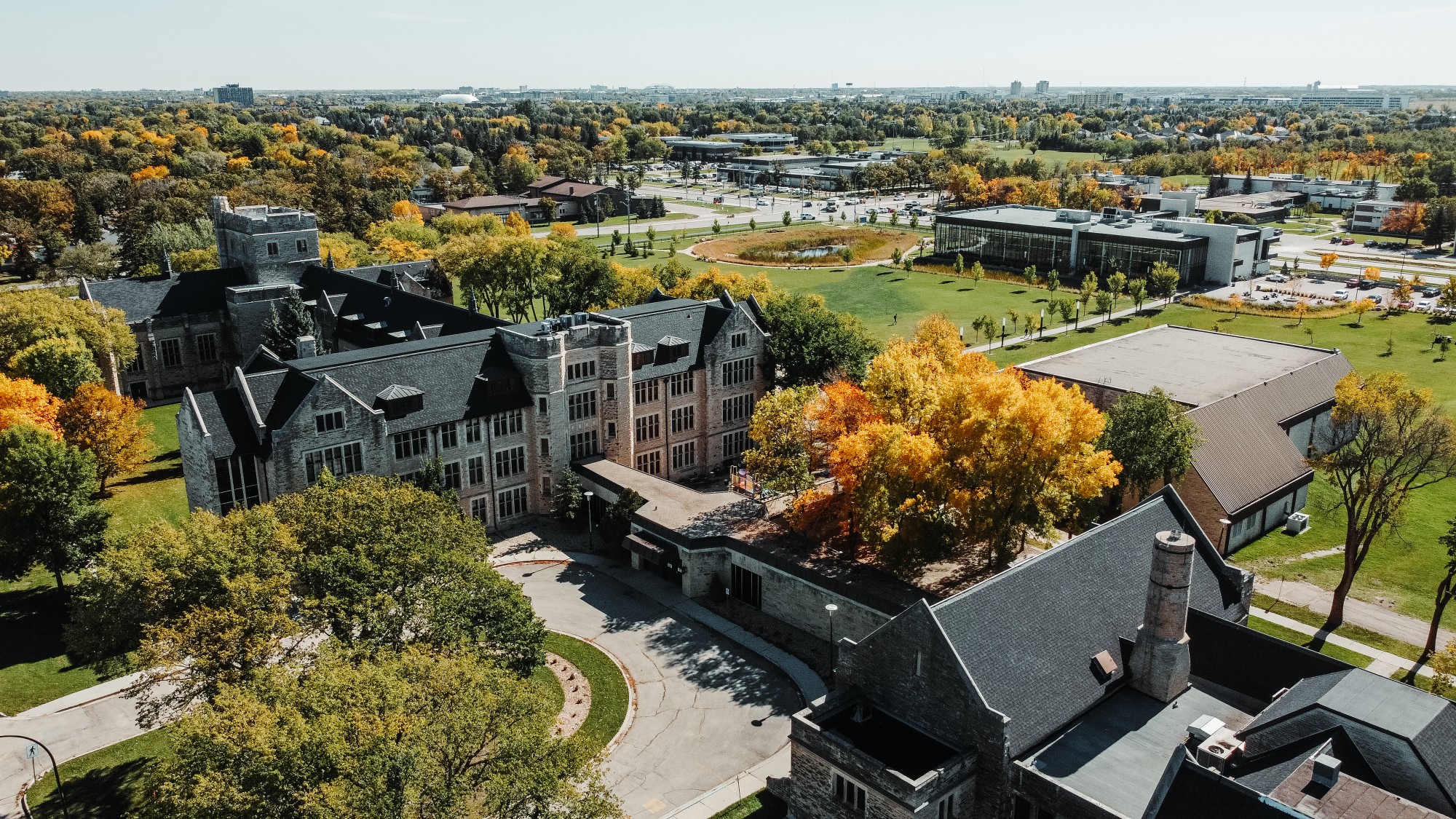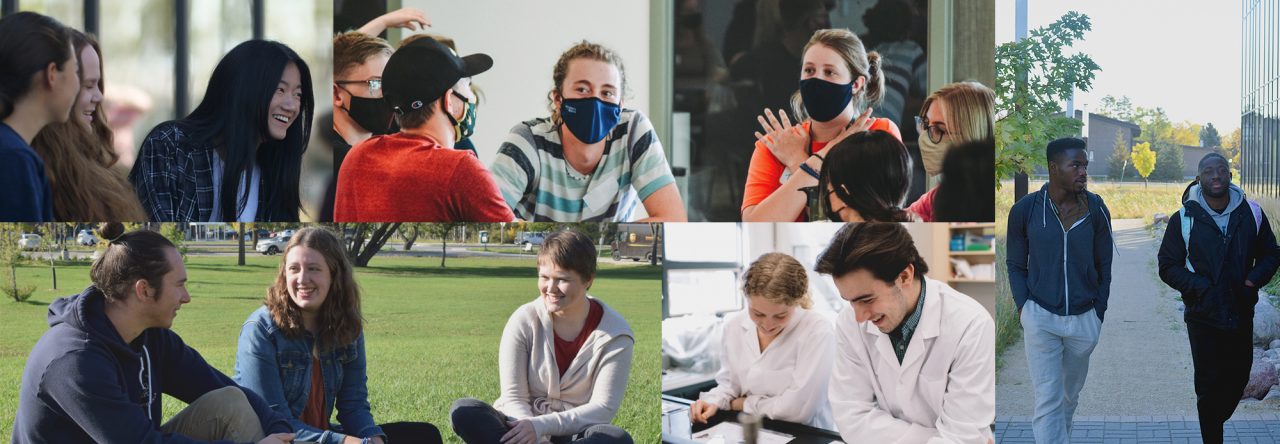Over the past five years, headlines implying that university and secondary education are dead have become more rampant and more common than ever before. For example, titles like “The university is dead: COVID-19 killed it”, “Whose university is it anyway?”, “Are we witnessing the death of the traditional university?”, and “Why universities are failing to prepare students for the job market” are just a few. Looking at the headlines paints a pretty bleak picture for secondary education and universities in particular. Never mind when you take the time to read the articles themselves. Repeatedly, the authors are noting three components to the supposed death of university. After sitting down with the director of CMU’s Center for Career and Vocation and Director of Practicum, Christine Kampen Robinson, the future for secondary education seems anything but bleak.
But first, why do people think university is dying? And why are people questioning the importance and validity of the university route? In the article titled “Why universities are failing to prepare students for the job market” by Melissa Gismondi, written in 2021, she notes that there has been a steady rise in universities shifting to part-time or adjunct instructors instead of the traditional professor.[1] Had Gismondi interviewed CMU, she would know that 90% of CMU’s faculty has PhDs, maintaining a rigorous academic standard and close faculty to student relations. A fact that is starkly different than most other universities.

A further challenge for universities is increased tuition. A study in 2017 noted that “more than 75 per cent of Canadian graduates under the age of 40 regret taking on student debt. According to Statistics Canada, the average university graduate finishes school more than $26,000 in the red.” Therefore, there is a more significant trend for high school graduates to take a gap year to make money before considering further education, whether college or university.[2] Once again, the critiques made towards universities focus more on public and bigger universities, and not smaller private universities like CMU. Half of the CMU student body receive financial aid in grants or bursaries from CMU and the wider CMU community. The last common theme is that with an increase in adjunct lecturers and tuition, administrative staff have a more business-like and creatively conservative environment. Professors are given less agency in choosing their classes and how they want the format of their classes to be.[3]
In the face of all these claims as to the death of university, why university? Why should young adults take on student loans? Why study for four years before heading into the workforce? Why university?
When asked ‘Why university?’ when it is complex and expensive, Christine said, “university is an opportunity to be immersed in new ideas in a way that I don’t think you’d have the opportunity to do in other contexts.”[4] She notes that “an important part of emerging adulthood is re-examining the different ideas and values you’ve been raised with and identifying which of those you’re adopting as your own and which of those you want to release.” University offers you a place to do that with other young adults who are experiencing the same thing. The process can be lonely “and it can be challenging to figure out what to replace stuff with,” but in a university setting where gaining knowledge is the everyday agenda, new ideas and values are readily available for consideration or adoption.

North America is a primary consumer society where people are often subconsciously asking ‘what can I get out of this?’ Much of what students can ‘get out’ of university is implicit and unmeasurable. Rather “what university can do is provide us with knowledge, but also how to find knowledge.”[5] One of the side effects of a university is that one learns that “you need to question everything, and that’s a healthy, good thing.” In a climate where misinformation is rampant, having the practices and experience of asking questions and looking deeper at a source or idea for its validity is important. In other words, being able to think critically is an important skill that is highly sought after by employers and is also something that one constantly learns in university.
Kampen Robinson explains critical thinking as the ability to compare, contrast and synthesize a wide variety of ideas alongside the ability to break down ideas and reexplain them for a different audience. These are all critical elements of any paper a student writes, but as a university, like society, is a higher outcome and output-based environment, the process often gets discounted. But it is in the process that the skills that employers and professors are looking for occur. Kampen Robinson believes that the “more we raise awareness of the process, I feel the more equipped people [will] be to connect those different pieces and show a broader story, and even just see how qualified they are for different [jobs].”
Throughout the interview, Kampen Robinson kept on returning to the idea of a story. In part, because that is where her background lies, but more predominantly, Kampen Robinson has noticed an inability to tell one’s story is where the university and workforce disconnect comes into play. She says, “I don’t think the problem is that students who are graduating do not have the skills that are being sought after in the work force, I think they don’t know they have them, and so you can’t tell a story about something you don’t see or that you don’t know exists.”

At CMU, every student must complete a minimum of 6 credit hours of practicum that is intentionally approached through a career development and vocational focus. This means that every student graduating from CMU will have had a career counselling session where Kampen Robinson and others emphasis this idea of ‘story’ and hands on experience as part of the workforce. In the accompanying class to the practicum requirement, Kampen Robinson and her colleagues help students think about ‘story.’ What is the story that they want to tell, and how can they frame the process of university; of writing papers and navigating different extracurricular expectations into a story that employers can understand?
Furthermore, these students are asked questions like “Who do you want to be? Who do you want to show up as? Who are you showing up to as now and how connected is that to where you want to be?” It is in learning to tell their story that they will be equipped for life past secondary education.
The idea of ‘story’ and the ability to tell one’s story is critical in future job security. As Kampen Robinson reiterates, “When students are equipped to tell their story, they can do that even when things change and even when things are scary and awful.” She goes on to say that “You can’t write a good resume, you cannot write a good cover letter, you can’t even see what kinds of job postings you would be interested in applying for, [or] don’t even know how to look for them, if you don’t know what the story is. If you don’t know what your story is and what the bigger world story is and how you connect to it.”

So, why university? There will never be a clear answer, and I am inclined to think there should not be. University is not about quick and clear answers. Or at least that is not what it is about at CMU. As Kampen Robinson reflected, after her bachelor’s, master’s and PhD “One of the big things I took away from university is the ability to look at stuff with nuance. There are multiple perspectives, multiple truths and that is uncomfortable. When we’re kids, we want things to be really clear. . . but that’s not how anything works.” Hugh Martin (who was in university management for over 20 years) echoes Kampen Robinson’s sentiments. It is at university where “we met people, we engaged with people, we debated with people, we argued with people, we met people from different backgrounds, different races, different colours, different genders, different sexualities, different behaviours, different language. We learned on campus about ourselves, we fell in and out of love with knowledge and with each other and all of that was about the journey of life that university does” and that is not something that can happen through online school, and not as easy to occur in other contexts.[6]
Martin rightly says, “We [the university] are not there to create job ready graduates, the purpose of a university is to create graduates who are ready for life.” To help shape young adults to have the skills and confidence to tell their story while listening to other people’s stories and seeing how they connect with a nuanced critical eye.
Written by Natasha Neustaedter Barg, a fifth year Bachelor of Arts, Social Sciences Major
Works Cited
“Financial Pressures, Fear of Debt Add More Layers of Stress to Incoming Post-Secondary Students | CBC News.” CBC News. CBC/Radio Canada, September 5, 2019. https://www.cbc.ca/news/canada/british-columbia/pomp-and-pressure-student-debt-1.5270915.
Gismondi, Melissa. “Why Universities Are Failing to Prepare Students for the Job Market | CBC Radio.” CBC News. CBC/Radio Canada, October 13, 2021. https://www.cbc.ca/radio/ideas/why-universities-are-failing-to-prepare-students-for-the-job-market-1.6208196.
Kampen Robinson, Christine. Why University?. Personal, November 23, 2021.
Srigley, Ron. “Whose University Is It Anyway?” Los Angeles Review of Books, February 22, 2018. https://lareviewofbooks.org/article/whose-university-is-it-anyway/.
Steele-Figueredo, Dr. David, Sam Benezra, and Jackson Schroeder. “Are We Witnessing the Death of the Traditional University?” The University Network, May 21, 2018. https://www.tun.com/blog/witnessing-death-traditional-university/.
The University Is Dead: COVID-19 Killed It. YouTube. TedTalk, 2021. https://www.youtube.com/watch?v=i-Idna3iS-A.
[1] Melissa Gismondi, “Why Universities Are Failing to Prepare Students for the Job Market | CBC Radio,” CBCnews (CBC/Radio Canada, October 13, 2021), https://www.cbc.ca/radio/ideas/why-universities-are-failing-to-prepare-students-for-the-job-market-1.6208196.
[2] “Financial Pressures, Fear of Debt Add More Layers of Stress to Incoming Post-Secondary Students | CBC News,” CBC News (CBC/Radio Canada, September 5, 2019), https://www.cbc.ca/news/canada/british-columbia/pomp-and-pressure-student-debt-1.5270915.
[3] Ron Srigley, “Whose University Is It Anyway?,” Los Angeles Review of Books, February 22, 2018, https://lareviewofbooks.org/article/whose-university-is-it-anyway/.
[4] Christine Kampen Robinson, ‘Why University?’ Personal, November 23, 2021.
[5] Christine Kampen Robinson. ‘Why University?’
[6] The University Is Dead: COVID-19 Killed It , YouTube (TedTalk, 2021), https://www.youtube.com/watch?v=i-Idna3iS-A.

